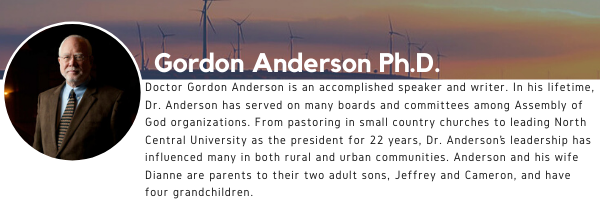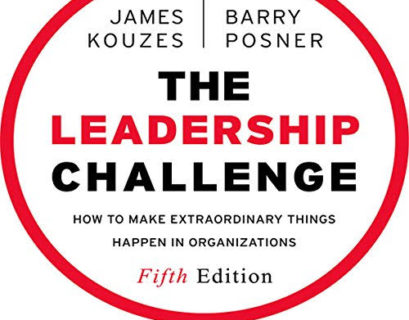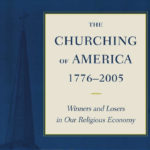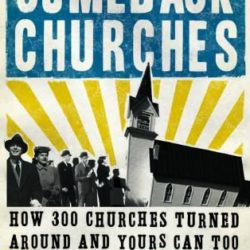Three Points of Wisdom for Leaders
By Gordon Anderson Ph.D.
I once pastored a church that was twice the size of the town it was in. Impressive! 20 people in town, 40 people in church. You might think that such a seemingly small assignment would not hold much promise for significant leadership lessons. Not so. Later in ministry I served in a school where the board was larger than the congregation of that small church, and yet, time after time, I have gone back to come of the most important lessons I have ever learned; lessons learned in that small country church. Here are my three favorites.
1. Leadership is rooted in personal relationships. It is not a program. Early on I learned that people get to know you in a small church. Leadership in this environment is more personal than programmatic. Organizing a large program, event, or organization can look impressive, and can pass for competent leadership. You know, big numbers – big leader. The fact is, drawing a crowd with a creative program is not hard; especially if it has popular appeal, is well-organized, and is well-funded. But in a small church, people care more for the size of the person than they do for the size of the program. While congregants would otherwise not care for just one more program, they will follow, support, and help an honorable leader.
During the early months, that small church undertook the project of adding on to the parsonage. It was a sizeable task for a small congregation. In a board meeting, I (the leader), asked how we were going to raise the money. A seasoned board member softly said, “Don’t you worry about that”. I, (the leader), had the good sense to say nothing more, and nothing more was said. The next week we took a building fund offering, and the entire cost of the project was donated at once. The church gave an amount equal to about one half their annual giving. I was shocked! No program, but all that money. I asked the seasoned board member how it happened. He smiled and said, “Oh, we made a few calls this week”. If I, (the leader), had tried to launch a fund-raising program similar to what you see in other settings, we would have had a program, but not the same kind of personal support. There would have been no personal phone calls, and no big offering. I have found that this simple principle works out the same regardless the size of the ministry assignment. I will take the personal, relational approach any time.
2. People talk, and they are believed. We know people talk, but I had no idea the kind of influence that talk could have. In the long run, what people say about you will become your reputation, whether you like it or not. In that small church I found that my reputation throughout the whole community was determined by a very small group of people. Were they gossips? No! These people had many of friends and relatives, and friends and relatives talk about matters that friends and relatives talk about. As the pastor of that small church, I was the talk of the town. My wife, Dianne, and I had good relationships with that small church. We did our best to live honorably, and the people became fond of us. They told everyone they knew that we were OK. The word spread, and I did not have to launch a PR campaign to develop a good reputation. The people did it for us. (See number one above). Reputation is the sum total of many small conversations, small business dealings, small lists of appointments kept, and small compliments about other people when a criticism could have been offered. There is no such thing as a small thing, and taking care of these small things armed those that would talk with positive matters to talk about. Was it always good and accurate? Not always, but most of the time it was. And for that, we established and maintained a good reputation in that small place. Later, we learned that it is no different in a larger environment as well.
3. Pennies count. After each service in that small church the board counted the offering and gave it to me in a bag, along with a note of the amount. It was my job to deposit the money the next day at our local bank, about 26 miles away. Seldom was the note exactly accurate, but the deposit slip had to be. One Sunday night after church I was conducting the deposit. When I had finished, I stood up and a penny fell to the floor. I picked it up and put it in my pocket. And then I had an enormous feeling of guilt. It was as though God had caught me stealing a thousand dollars. It was late and I was tired. Without thinking I said, “Its only a penny,” but that lame remark didn’t dissolve the guilt at all. Then I said, “I’ll put it in next week’s offering,” but that did not help either. So, I sat down, redid the deposit slip, put it in the bag, and tore up the inaccurate one; the one that was off by just one penny. It did not take long, but the guilt lifted, and I learned one of the most important lessons of my life. There is no such thing as “just a penny.” It was not a penny that fell to the floor. It was a principle. The amount did not matter. As a trusted leader I was handling principles, not pennies. That night I learned something I have carried with me for the entirety of my ministry; those who are faithful with just a little will also be faithful with much, and those who are unfaithful with just a little will be also be unfaithful with much. I thank God for that night in the basement of a small parsonage, in a small church, in a small town.
I hope these three stories might have an impact on you in some way similar to what they have had on me. I have learned many lessons in some 53 years of ministry, but none have had greater impact than the really big lessons I learned in a very small place.





















